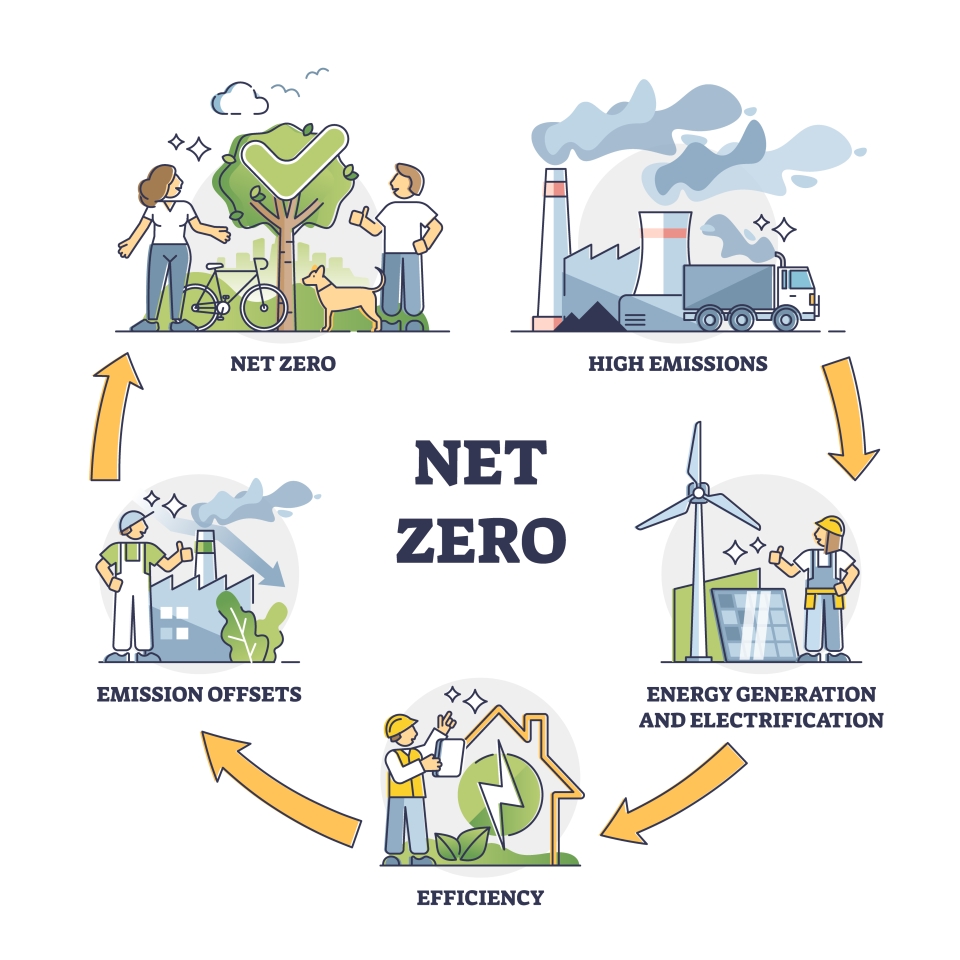Net-zero pledges are crucial for improving the machinery industry’s resilience and sustainability
2022/09/05 | By CENS
With countries pledging to achieve net-zero emissions, industries such as manufacturers must step up to implement greener solutions to production. The machinery industry in Taiwan has been on the cusp of significant changes in the past decade, as Industry 4.0 and smart manufacturing were increasingly introduced into this sector. In a discussion with CENS, which published the article in the newest edition of Taiwan Machinery - Industry Trends, we spoke to Dr. Da-Jeng Yao, General Director of the Mechanical and Mechatronics Systems Research Laboratories at the Industrial Technology Research Institute (ITRI). Dr. Yao shares his insights for Taiwan’s machinery suppliers on the pros and cons of keeping up with net-zero guidelines, and how suppliers can carry out the process to improve the machinery industry’s resilience and sustainability.
Taiwan Machinery’s Advantages
Taiwan’s machinery sector was ranked as Taiwan’s third largest, trillion dollar-valued export industry behind semiconductors and display panels, having accumulated an industry value of approximately NTD$1.3 trillion in 2021. The domestic machinery sector boasts a comprehensive industry hub by functioning under a high-mix, low-volume manufacturing system. The core advantage of this model in Taiwan includes achieving fast lead times, low costs, and supplier flexibility towards various demands.
Using the local machine tool industry as an example, Dr. Yao pointed out that it was once ranked 7th in terms of industry value worldwide, while in export value, it ranked fourth, following Germany, Japan, and Italy. Dr. Yao credits Taiwan’s unique industry hub model for the machine tool success story, similar to the “urban production” concept that is more popular abroad. He believes that the advantages of the industry hub model can offer net-zero emission effects today.
Under ITRI’s R&D counseling, the Institute has helped guide the machinery suppliers’ transition to greener energy usage and improved power efficiency through four areas: energy supply, power consumption, low-carbon manufacturing, and sustainable environment. Dr. Yao also said that ITRI has rolled out net-zero emission transition consulting services for industries by connecting the industry, academic, and government sectors to work together. He cited Fong Kee International Machinery’s efforts in electrifying all of its equipment to replace traditional hydraulic motors and introducing smart manufacturing technologies to address issues like energy waste and pollution. Electrifying machinery can help suppliers save 20% to 40% on the energy used.
Where CanTaiwan Go from Here?
Taiwan’s machinery suppliers can no longer rely on a cost-reduction strategy, as the external cost of energy and raw material are greatly impacting the industry today. With this trend, Dr. Yao advises that companies should not only focus on high-quality features, but also move to implement the new features, convenience, digitalization, and quick lead times to improve their advantages.
Dr. Yao also mentioned following trends and suggestions for suppliers. Aside from the most obvious concept, such as smart manufacturing; he suggested digitalization, low-carbon manufacturing/low-carbon products, low-carbon power, power conservation efforts, and negative carbon technologies. The reason behind his comment is explained as thus: In the past, the suppliers could only focus on how to reduce carbon emissions in the production process, but nowadays, how to manufacture their products to help clients achieve low carbon usage is important as well.
World Events’ Impact
A number of global events that occurred in the first half of 2022 could have lasting impacts on Taiwan’s manufacturing and machinery industries if suppliers do not make timely changes. Recently, Taiwan’s manufacturing makes up over 30% of the GDP. But with global inflation rate hikes, unstable raw material supply, and worker shortages due to the low birth rates, companies are now proactively adjusting their inventory policies, introducing more flexibility and willingness to accept new technology into their supply chains, and improving resiliency.
Dr. Yao said that companies should also take note of current trends, specifically net-zero pledges. He encourages suppliers to work towards lowering carbon emissions ahead of net-zero policies coming into effect, such as increased costs from carbon taxes. Dr. Yao suggests suppliers gradually work from the areas that have a lower entry threshold, such as energy-saving measures, improving production efficiency, and implementing tools to reduce carbon emissions.
Suppliers in Taiwan have technological and manufacturing know-how advantages amid the new state of global trading affairs between the U.S. and China. With shortened supply chains aimed at introducing resiliency and reducing disruptions, industries with expansive, worldwide supply chains are less necessary. With Taiwan’s high-caliber talents and manufacturing quality, manufacturers can fully focus on upgrading the supply chain’s automation and smart capabilities, introduce worldwide mobility so that automation can replace labor, and AI or machine learning to absorb the technical experience.
Manufacturers should look to reduce carbon emissions in the production stage as well through implementing smart manufacturing and improving efficiency/energy-saving equipment, Dr. Yao said. Small and medium-sized enterprises can look to larger companies as a blueprint when deciding which technologies to implement. Such measures would ensure that companies’ carbon-conscious products would be hit by fewer carbon taxes, as future laws would look at the carbon emissions in the entire production process and product lifespan.





